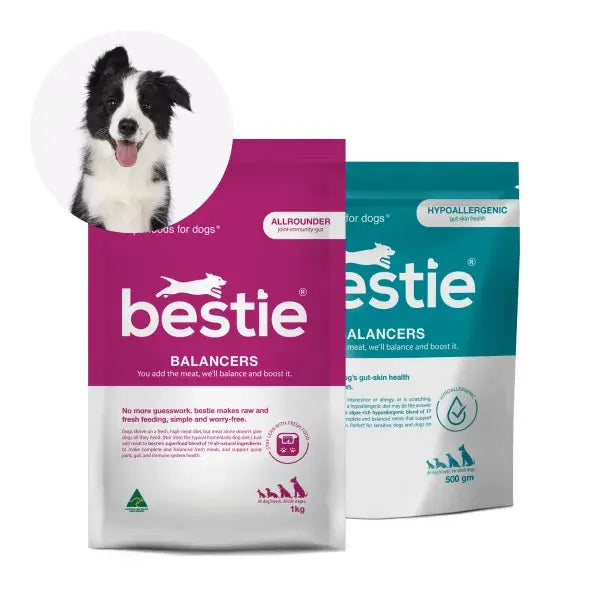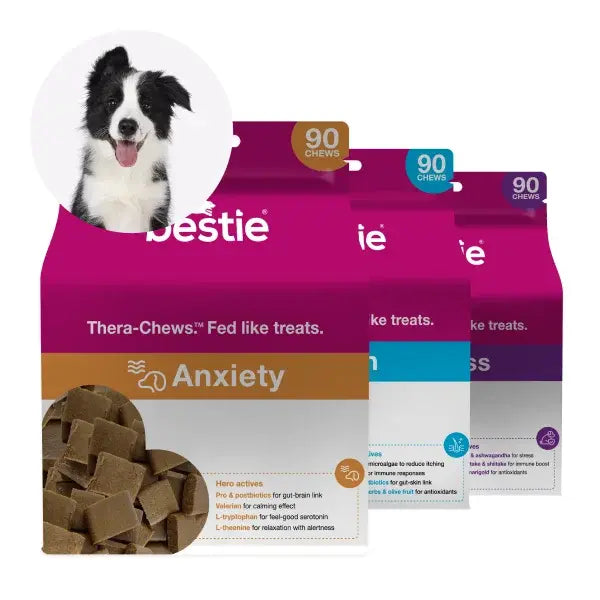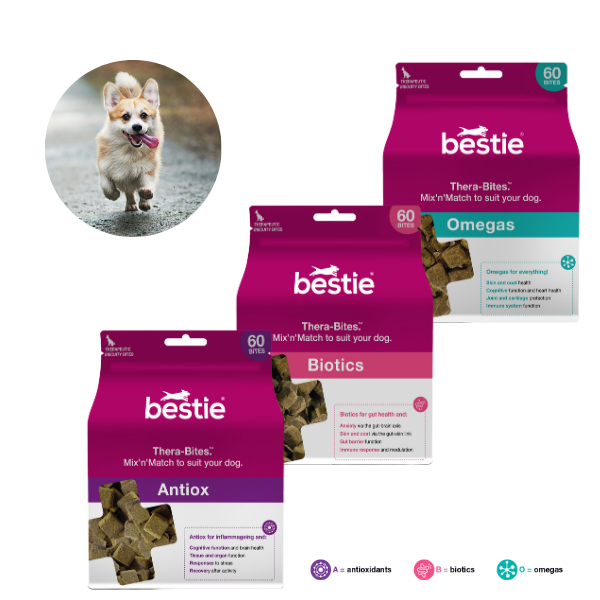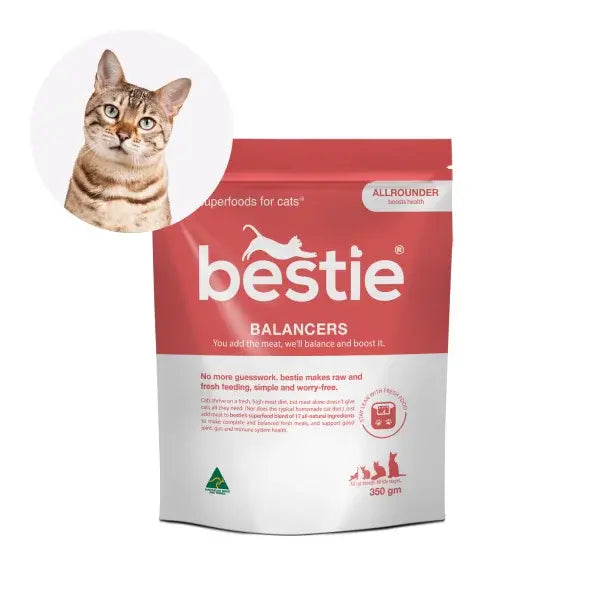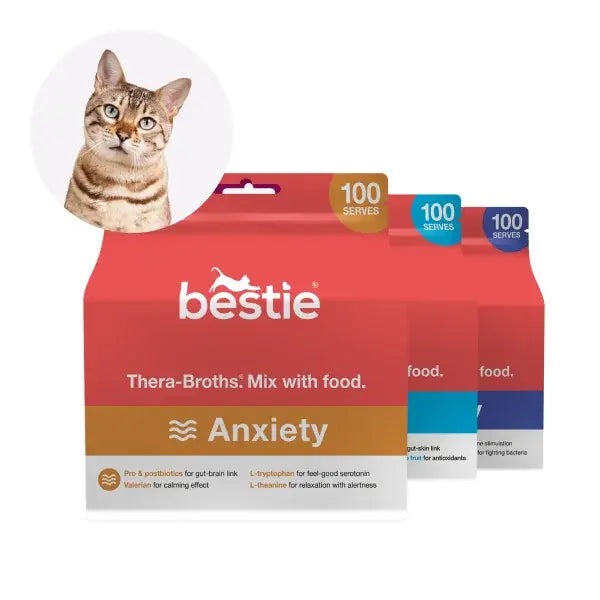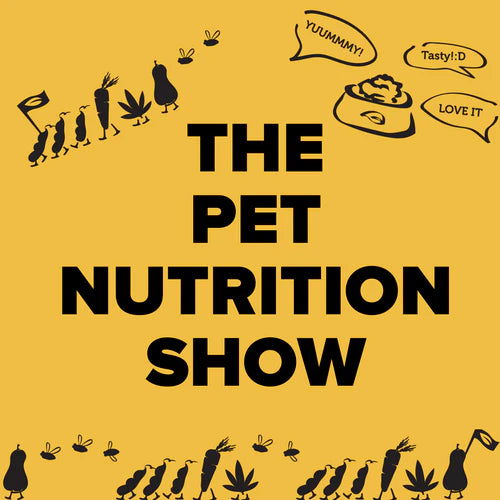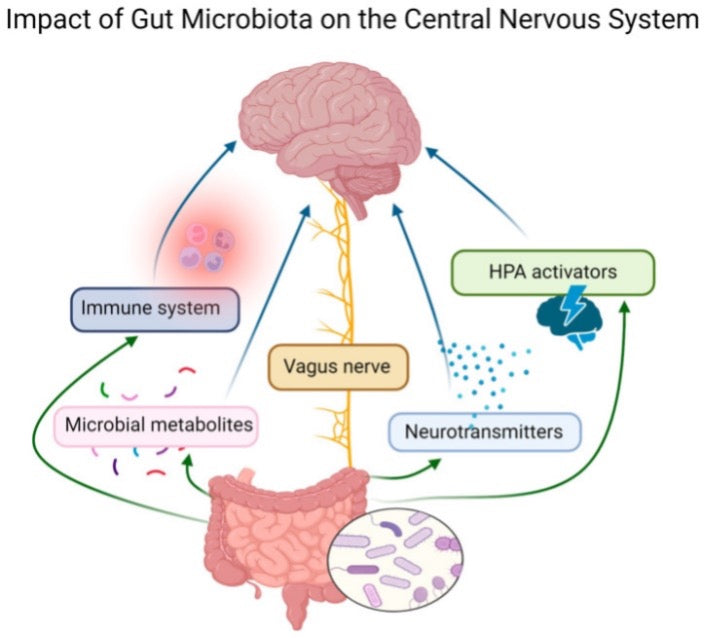In the second episode of The Pet Nutrition Show, we talk to Dr Andrew Knight, a veterinarian turned veterinary academic, who puts the cat right among the pigeons by advocating vegan diets for pets. In our interview, we explore the environmental and health benefits associated with feeding pets a vegan diet.
Here are the headlines from The Pet Nutrition Show episode:
- A study of 2500 dogs showed that dogs on a vegan diet went to the vet less, and needed less medication. They have health outcomes that are at least as good and sometimes better than dogs fed conventional meat-based diets.
- A study produced by a research group at one of Canada's leading veterinary schools found that dogs fed vegan diets had an average lifespan one and a half years longer than those on conventional meat-based diets.
- A palatability study of 2300 dogs and 1100 cats, found that animals seemed to be enjoying the vegan diets as much as the meat-based diets on average.
- Obligate carnivore means that in their natural environments out in the wild, cats need to hunt and kill a variety of small mammals, birds, and insects in order to meet their nutritional needs. That's got very little relevance to a modern domesticated house cat.
- What the cats need biologically and the same for dogs and indeed for any species is a specific set of nutrients packaged up into a formulation that's sufficiently palatable so the animals will enjoy eating it and adequately digestible
- Just under half of all the ingredients used in conventional dog and cat food are actually plant-based. It’s the other meat ingredients that have the most environmental impact.
- If all the world's dogs transitioned to vegan diets, the greenhouse gas savings would be equivalent to the emissions of the entire United Kingdom. You would also be able to feed another 450 million people with the food energy saved, and that's more people than in the entire European Union.
Have a listen to the show, but if you’re short on time, here’s a summary and some clips:
1. The Case for Vegan Pet Diets:
Andrew Knight, during his interview, highlighted the alarming statistics of animal population decline and the role of the livestock sector in contributing to climate change, land degradation, and deforestation. He argues that transitioning our pets to nutritionally sound vegan diets could offer significant environmental benefits.
2. Environmental Impact:
According to Andrew's research, if all the world's dogs transitioned to vegan diets, the greenhouse gas savings would be equivalent to the emissions of the entire United Kingdom. Similarly, transitioning people to vegan diets would free up more greenhouse gases than the entire European Union produces. Vegan diets for pets also result in significant land and water savings, sparing deforestation and reducing freshwater consumption.
3. Feeding More People:
It is estimated that one in nine people suffers from hunger and malnutrition, despite the world producing double the amount of grain needed to feed everyone. Andrew's research showed that by transitioning dogs to vegan diets, we could feed an additional 450 million people with the food energy saved. Transitioning humans to vegan diets could potentially feed two-thirds of the world's population.
4. Health Outcomes:
One common concern about vegan diets for pets is their nutritional adequacy. However, Andrew's studies, comparing the health outcomes of dogs and cats fed vegan diets to conventional meat-based diets, indicate that nutritionally sound vegan diets can provide equal or even better health outcomes. Dogs on vegan diets showed reduced allergic reactions, better mobility, and potential lifespan increases of up to 1.5 years compared to their meat-eating counterparts.
5. Debunking Biologically Appropriate Diets:
Andrew emphasizes that the concept of biologically appropriate diets for pets is often misunderstood. Rather than specific ingredients, animals have specific nutritional requirements. Vegan pet food formulations are carefully designed to meet those requirements, resulting in complete and balanced diets. Studies have shown equivalent or superior digestibility and palatability in vegan pet foods.
Conclusion:
Based on the research conducted by Andrew Knight, transitioning our pets to vegan diets can have significant environmental benefits, contribute to global food availability, and potentially lead to improved health outcomes for our beloved animals. As pet owners, we have the power to make a positive impact on the planet and our pets' well-being by considering the benefits of vegan pet diets. So, let's play our part in creating a more sustainable future for all beings by choosing nutritionally sound vegan pet foods from reputable companies. Together, we can make a difference!


